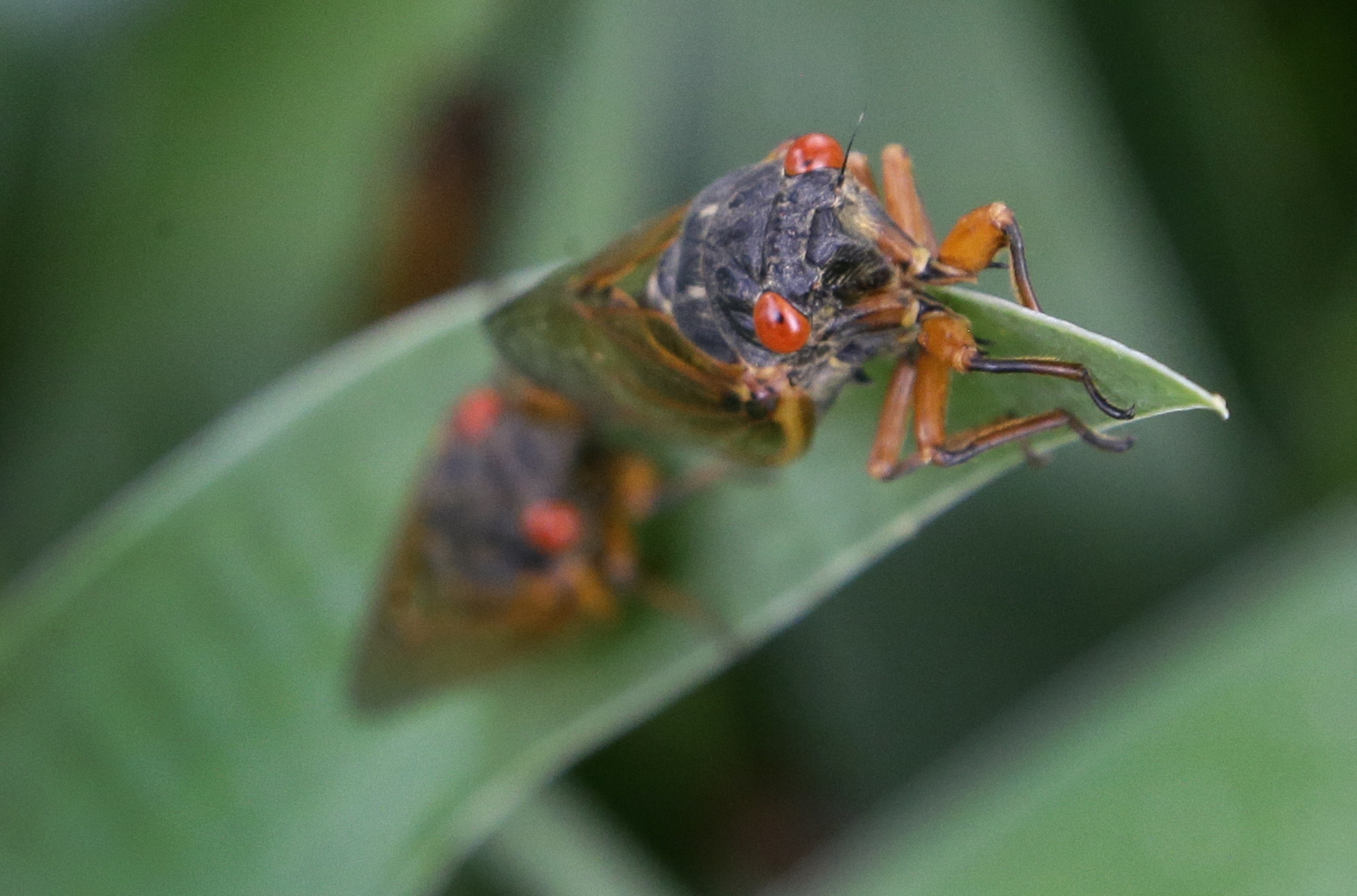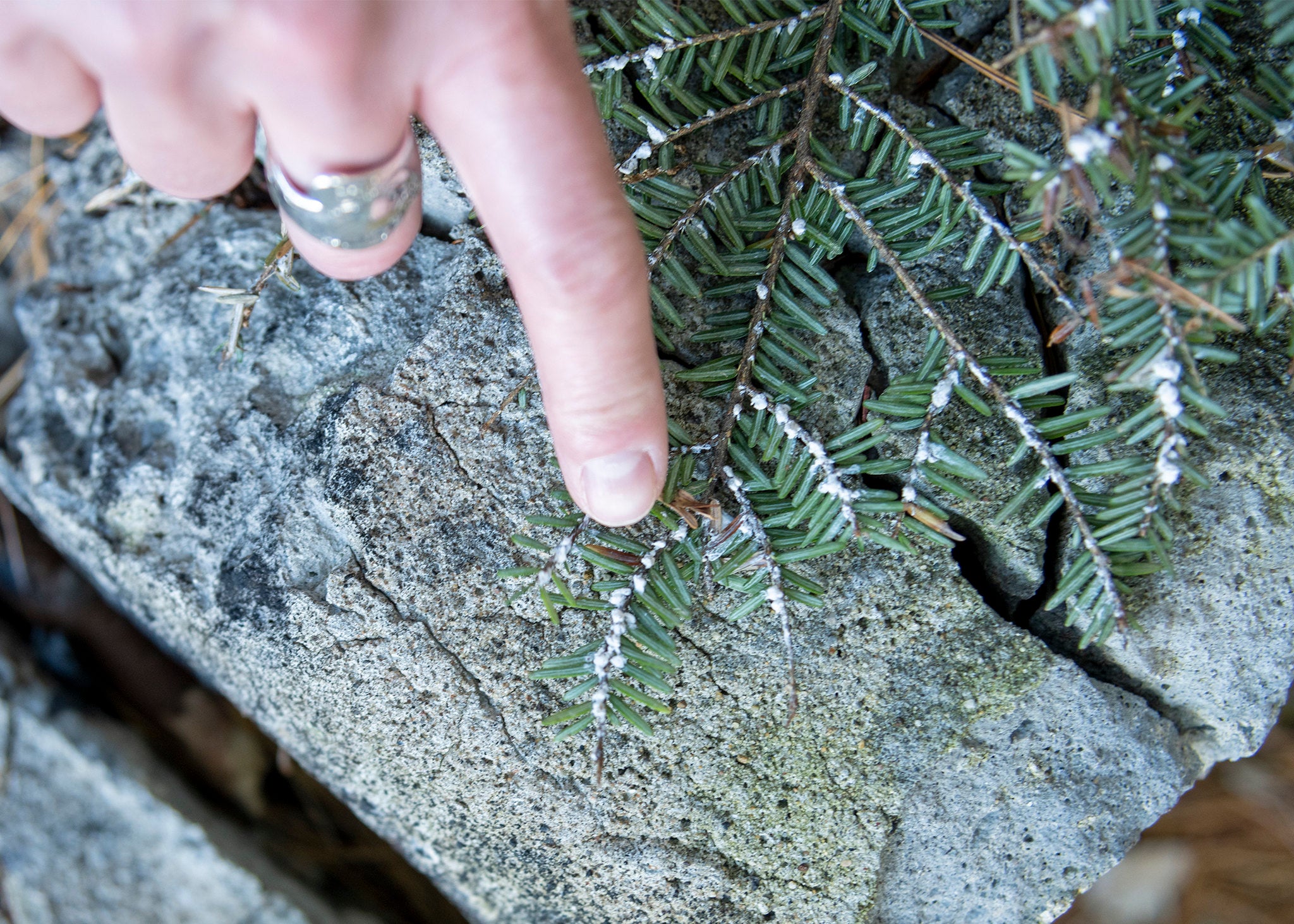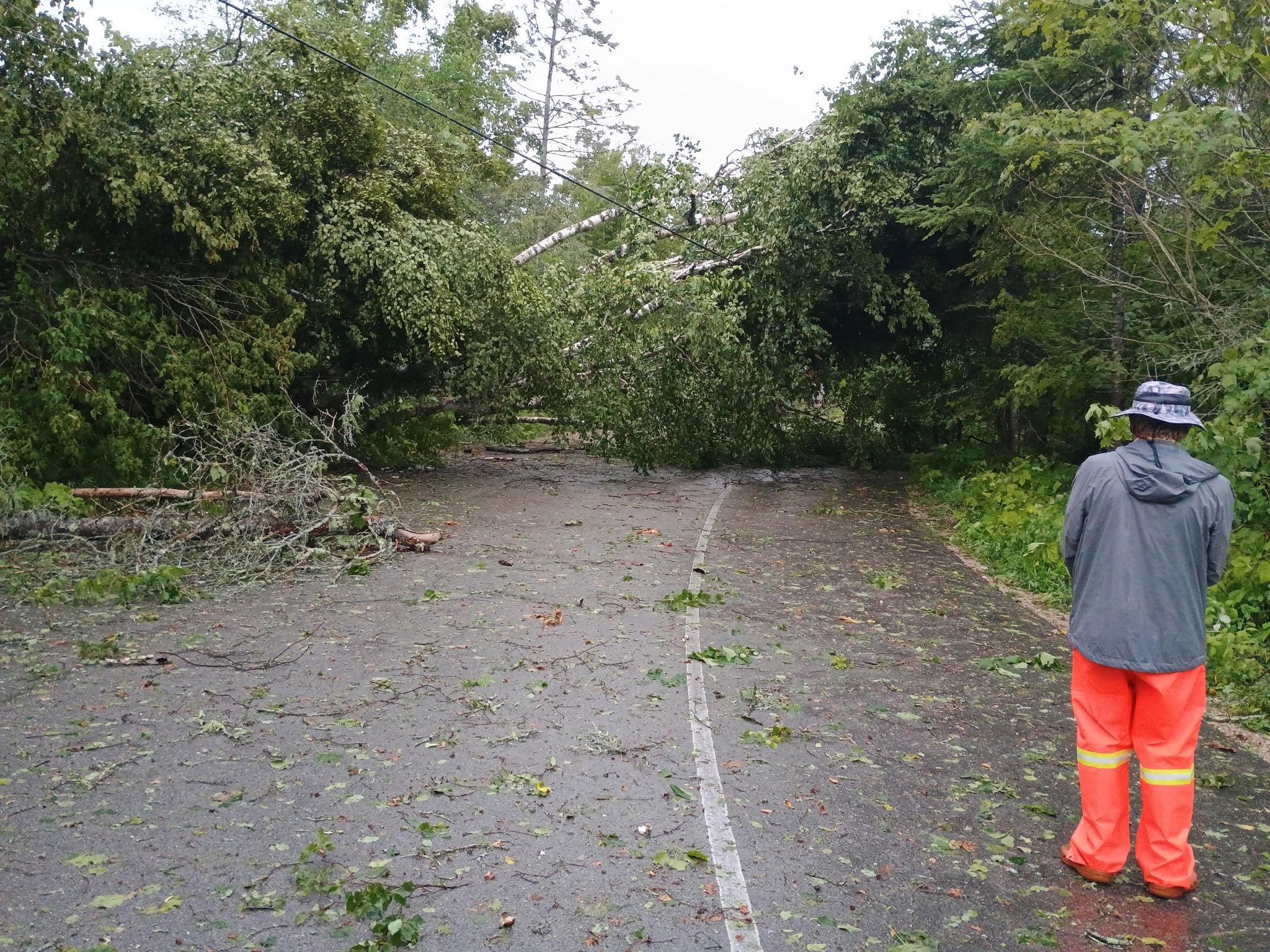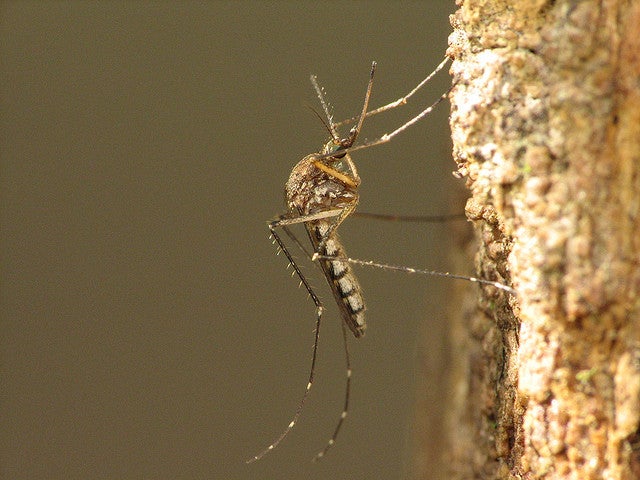The sounds of summer could be a lot louder this year depending on where you live in Wisconsin.
That’s because for the first time since Thomas Jefferson was president, two rare broods of cicadas will emerge at the same time. PJ Liesch, an extension entomologist at the University of Wisconsin-Madison, said this event only occurs once every 221 years.
“It’s something that is really unique and special for us,” Liesch said.
News with a little more humanity
WPR’s “Wisconsin Today” newsletter keeps you connected to the state you love without feeling overwhelmed. No paywall. No agenda. No corporate filter.
The two broods are the Brood XIII, a 17-year periodical cicada, and the Brood XIX, another periodical cicada which emerges every 13 years. The last time both broods emerged at the same time was in 1803, before Wisconsin was even a state.
It could make for an interesting — and loud — summer, as billions of the insects will be scattered throughout portions of the Midwest.
There are annual cicadas, known as the “dog day cicada” in Wisconsin, which normally emerge above ground in July and August. But periodical cicadas, which have the longest known insect life cycle, only emerge every 13 or 17 years. They’re categorized as “broods,” and Liesch said they’re numbered with Roman numerals so scientists can keep track of them.
“And so if you do the math, the same 17 and 13 year cicadas only sync up over a very, very long time period,” Liesch said. “So the last time this happened was the early 1800s. And it’s going to be 200 more years before these same two groups or broods of cicadas emerge in the same calendar year.”
Liesch said for most Wisconsinites, it won’t impact their lives too much, as the insects will only be out and about in specific regions across the southern portion of the state. In Wisconsin, they’ll be noticeable near the Wisconsin River in the Prairie Du Chien area, near the Mississippi River across the border in Dubuque, Iowa, near Beloit and Janesville and in Lake Geneva.
“If you’re outside of these areas, chances are you just won’t be bumping into these particular cicada,” he said.
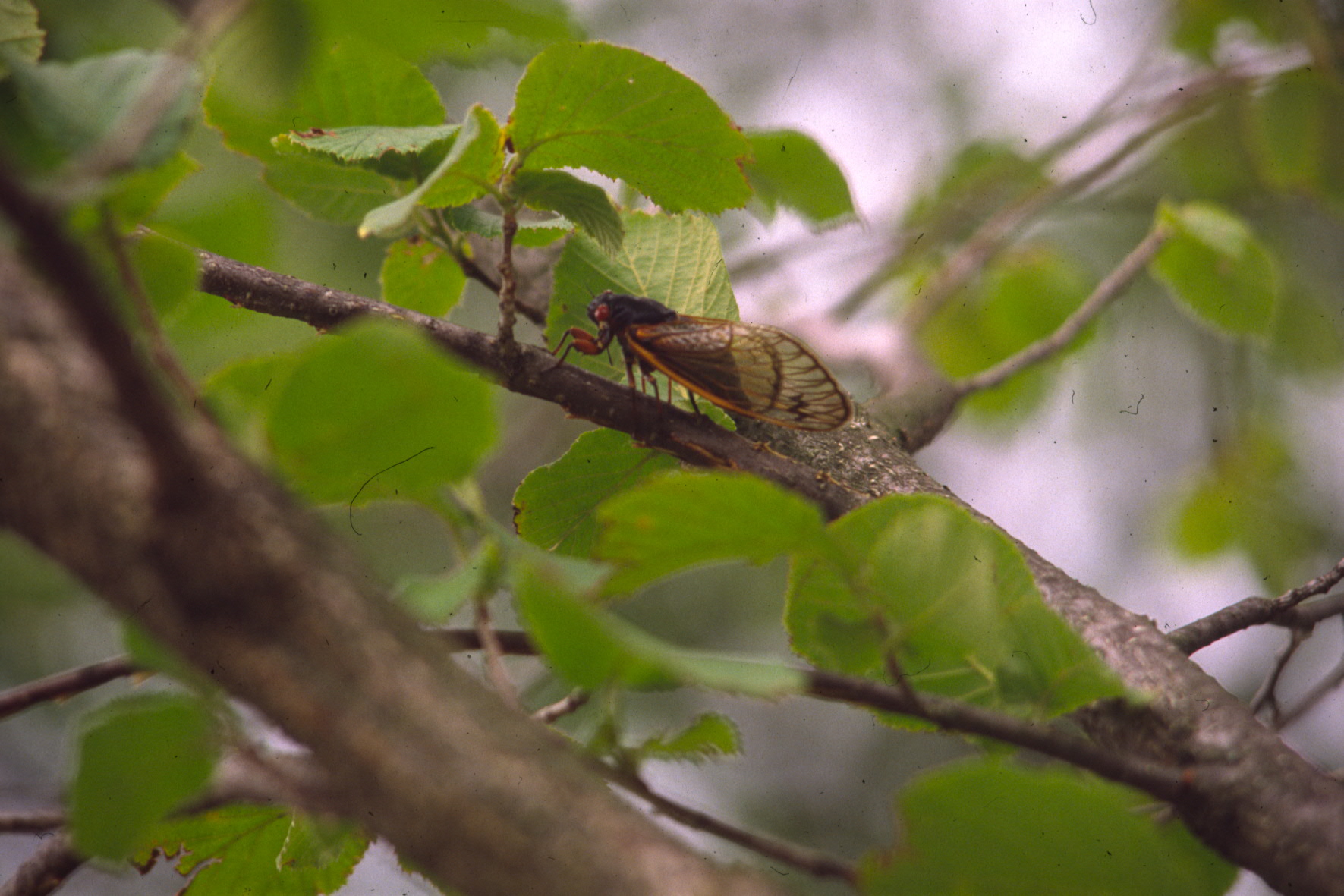
‘It’s going to be very, very loud’
But if you are in one of those areas, it’ll be loud. Liesch said they’ll be “absolutely everywhere” for a few weeks this summer.
“So if you are in an area that has these cicadas out, it is going to be almost a science fiction-like experience, because you can have just the sheer numbers of these insects out by the tens of thousands, or hundreds of thousands, or by the millions,” Liesch said.
But Liesch said starting in mid-June, Lake Geneva will likely be the best place to see, and hear them.
The high-pitched noise cicadas make is to try to find a mate.
“So if you’re in one of those areas, it is going to be very, very loud when the cicadas are out and active,” he added.
He’s just not sure exactly how loud it could get yet when it comes to decibel levels. But some cicadas can produce sounds of over 100 decibels.
“I have heard from reports, it can be very, very loud and a bit of an annoyance when that happens,” he said.
Adam Passo, an arborist at Davey’s Tree Expert Company, said the high-pitched noise will likely be loudest during dusk.
“These (sounds) are going to be really loud and maybe kind of deafening with two broods and so many cicadas in there,” Passo said.
In 2007, when the 17 year cicadas last emerged, they interfered with outdoor events and activities across the nation. In Chicago, that meant some residents had to remove them with shovels, to clear sidewalks and roads.
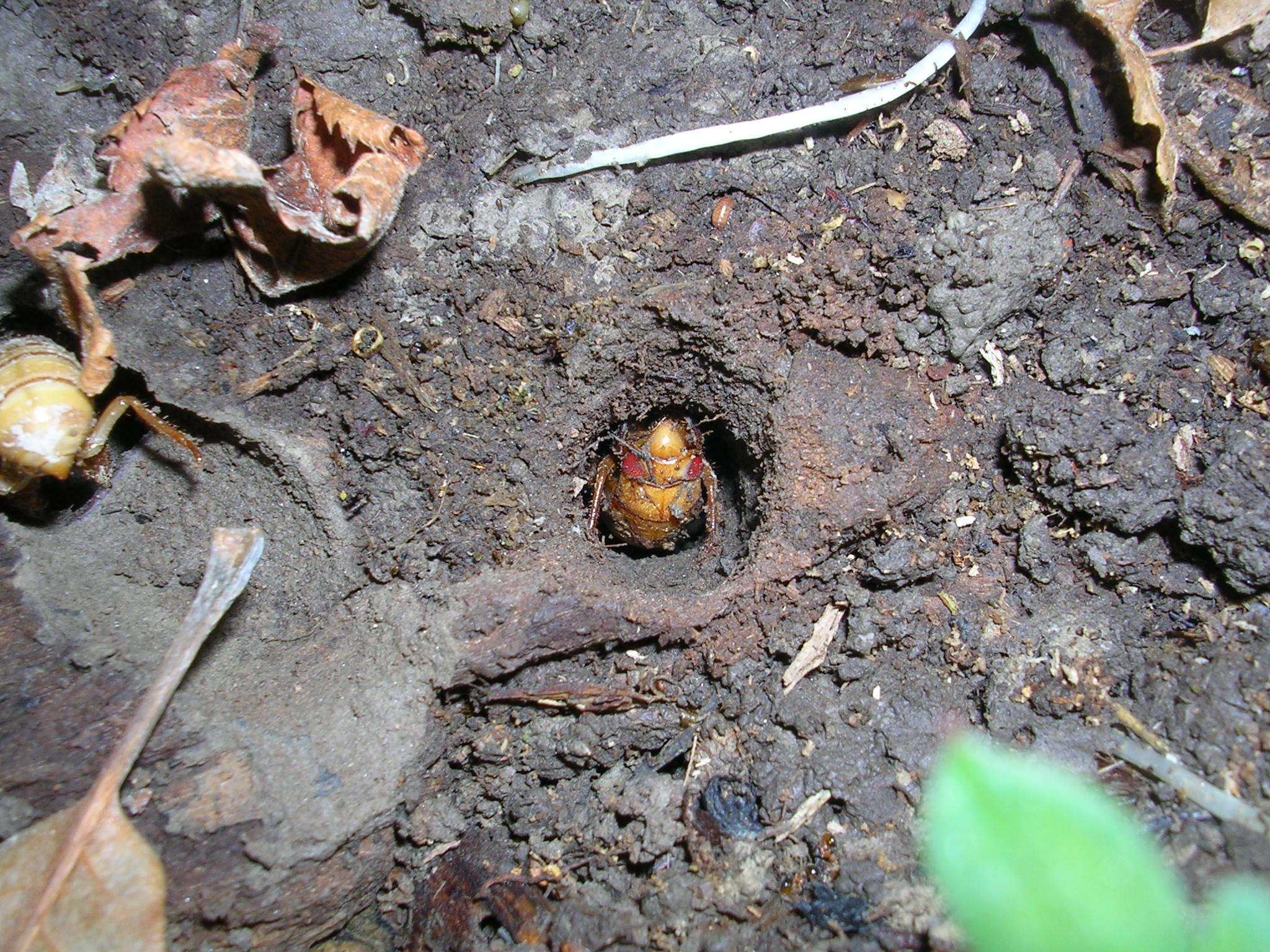
Cicadas could harm small trees, but not people
But Liesch said not to worry.
“The cicadas themselves are harmless to people and pets. They don’t bite us, they don’t sting or anything like that,” he said.
The periodical cicadas generally look the same — they’re blackish with some orange on the body and reddish-orange eyes. They can’t jump and don’t walk or run well, so they only fly when they need to move more than a few inches.
They could, however, cause some harm to some smaller trees.
“Most (trees) shouldn’t see many problems, maybe some brownish leaves,” Liesch said.
Passo said the cicada can cut a slit in small branches and deposit their eggs in those branches.
“So that’s where it could be a little bit damaging to our beloved trees. It’s generally the small trees that get affected than larger trees. It’ll happen but it won’t hurt the tree hardly at all,” Passo said.
But netting over the tree can help negate that problem.
Liesch said he’s excited to go to Lake Geneva to see the insects for himself.
“I’m planning to go down to Lake Geneva area and see them with my own eyes this summer,” he said. “I’m really looking forward to it, just to be able to experience this unique natural phenomenon that we don’t see very often here in Wisconsin.”
Wisconsin Public Radio, © Copyright 2025, Board of Regents of the University of Wisconsin System and Wisconsin Educational Communications Board.

